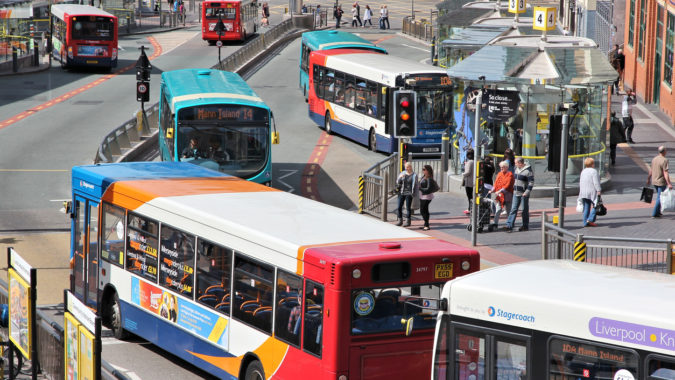Every day, all of us rely on the efficiency of our freight industry to deliver goods to our homes and businesses: the manufacturer dependent on just-in-time delivery of crucial parts; the family that avoids the weekly trip to the supermarket in favour of getting their groceries dropped off at their doorstep; or the shopper looking for their purchases to arrive the very next day.
And the UK’s freight sector meets that challenge. Managing all these demands has made our freight industry one of the most efficient in the world. It moved 1.6 billion tonnes of freight in 2017, and has developed an intricate network of ports, airports, rail and road networks and distribution hubs through which to do it.
The demand for freight will grow as the population rises. The weight of goods transported by HGVs is expected to rise by as much as 45 per cent over the next 30 years – and goods going by light van could rise by as much as 89 per cent. That growth is not without consequence for the environment and for our already frequently congested transport networks.
That’s why we’ve set a challenge to government and the freight industry in our new report, Better Delivery: the challenge for freight. Ensuring our freight industry is fit for the future requires making tough decisions now.
Our central finding is that with operators facing tough competition and tight profit margins, government action will be needed if we’re to mitigate the negative impact that our freight industry can have on communities and environment as our reliance up on it grows. Without the involvement of Whitehall and town halls – co-operating more closely with the freight sector – this is a situation that will only worsen.
Our recommendations are ambitious. We’re calling for a ban on the sale of new petrol and diesel HGVs from 2040; but alongside that, we need to see encourage the wider take-up of low-carbon solutions for powering freight vehicles, and that means identifying the infrastructure needed to support that transition and changes to the electricity network to cope with increased demands. There also needed to be more concerted action to tackle emissions from the rail freight sector.
We also want to see the needs of freight considered much earlier in the planning process as a whole system, to encourage new ways to reduce its impact on congestion and embed freight into long-term development plans.
Though ambitious, these proposals are also achievable; but all of them require government action to become a reality. We believe ministers should set out their plan for switching to less polluting lorries within the next two years, so that the industry knows when and whether to invest in new alternative fuels such battery technologies or hydrogen.
For the rail industry to tackle its emissions, it needs a plan from ministers by 2021 specifying the investments and subsidies that will be available to get there. To make better use of existing capacity, councils will need planning guidance to support their efforts to minimise the impacts of freight operations in busy cities, as well as a framework for minimum standards of data collection from the industry itself to support better planning.
But none of this will work without better coordination between the government and industry. That’s why we’ve also proposed a new Freight Leadership Council, comprising representatives from all the freight modes and parts of the supply chain, as well as from three government departments – the Department for Transport, the Department for Business, Energy and Industrial Strategy and the Ministry of Housing, Communities and Local Government. We think this new group should meet twice a year to discuss the issues the industry faces, including ensuring that our wider recommendations are being implemented.
Our freight industry is one we can be proud of. It’s one that we barely notice when things go well (thanks to a positive record of investment and innovation). But it’s also one that is immediately in the spotlight and the subject of our anger when things go wrong.
Few if any of us are likely to agree to an end to next-day deliveries and few manufacturers will want to turn the clock back to large warehouses for parts they now have delivered at the precise time they’re needed. But, this innovation comes at a cost to our roads and railways and, ultimately, the quality of life in our communities.
By recommending that we address these difficult questions now, we think this world-class industry can continue to grow, and meet the demands we place on it long into the future.



